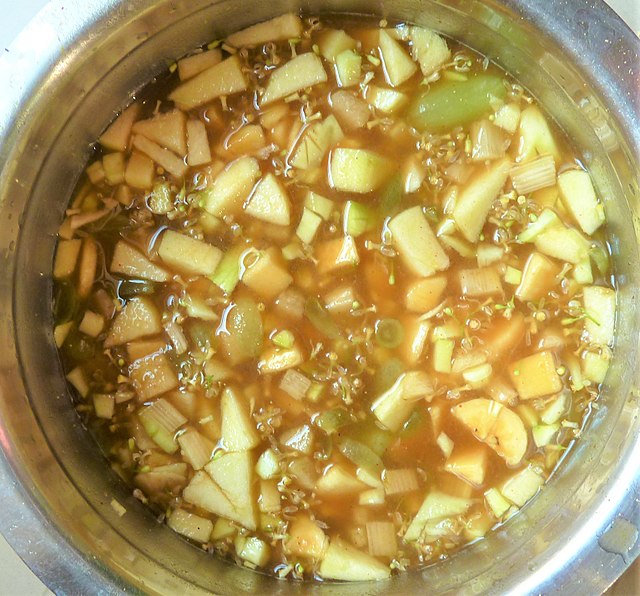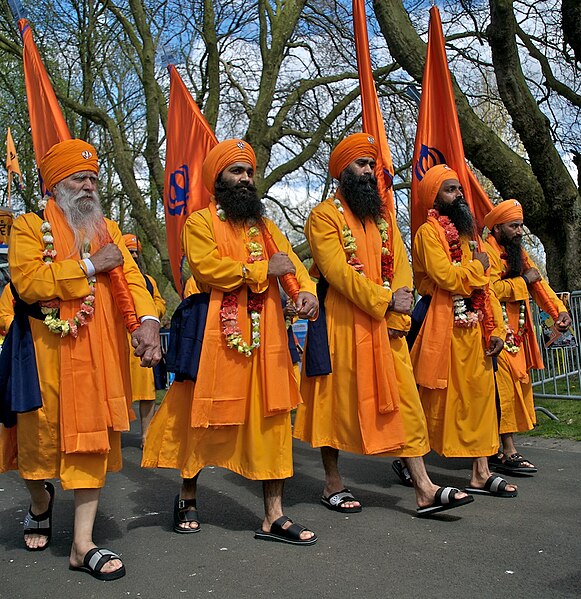Ugadi or Yugadi, also known as Samvatsarādi, is New Year's Day according to the Hindu calendar and is celebrated in the states of Andhra Pradesh, Telangana, Karnataka and Goa in India. The cycle actually consists of 60 years, each year individually named. The first day of each year is called 'Ugadi'. The word Ugadi can be split into two: Uga means Course of Stars and Adi means Starting. It is festively observed in these regions on the first day of the Hindu lunisolar calendar month of Chaitra. This typically falls in late March or early April of the Gregorian calendar. It also falls during the Tamil month of either Panguni or Chithrai, sometimes on the day after Amavasya with 27th Nakshatra Revati. Ugadi day is pivoted on the first New Moon after March Equinox.
Ugadi Pachadi with puja tray
Ugadi Pachadi
Muggu (rangoli) arrangement in April 2009
Ugadi Pacchadi (right) is a symbolic dish prepared by Hindu people on this festival
Vaisakhi, also known as Baisakhi, marks the first day of the month of Vaisakh and is traditionally celebrated annually on 13 April and sometimes 14 April.
It is seen as a spring harvest celebration primarily in Punjab and Northern India.
Whilst it is culturally significant as a festival of harvest, in many parts of India, Vaisakhi is also the date for the Indian Solar New Year.
Sikh procession in Birmingham, England.
Bathing in rivers is a Vaisakhi tradition
Baba Ram Thaman Shrine
Some Indians mark their traditional new year with fireworks








